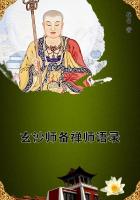Going into society increased the expenses which Ronald and his wife found already heavy enough. There were times when the money received from the sale of his pictures failed in liquidating bills; then Ronald grew anxious, and Dora, not knowing what better to do, wept and blamed herself for all the trouble. It was a relief then to leave the home over which the clouds lowered and seek the gay villa, where something pleasant and amusing was always going on.
The countess gathered around her the elite of Florentine society; she selected her friends and acquaintances as carefully as she selected her dresses, jewels, and flowers. She refused to know "bores" and "nobodies"; her lady friends must be pretty, piquant, or fashionable, any gentleman admitted into her charmed circle must have genius, wit, or talent to recommend him. Though grave matrons shook their heads and looked prudish when the Countess Rosali was mentioned, yet to belong to her set was to receive the "stamp of fashion." No day passed without some amusement at the villa--picnic, excursion, soiree, dance, or, what its fair mistress preferred, private theatricals and charades.
"Help me," she said one morning, as Ronald and Dora, in compliance with her urgent invitation, came to spend the day at the villa--"help me; I want to do something that will surprise every one. There are some great English people coming to Florence--one of your heiresses, who is at the same time a beauty. We must have some grand charades or tableaus. What would you advise? Think of something original that will take Florence by surprise."
"Wishing any one to be original," said Ronald, smiling at her quick, eager ways, "immediately deprives one of all thought. I must have time; it seems to me you have exhausted every subject."
"An artist has never-failing resources," she replied; "when every 'fount of inspiration' is closed it will be time to tell me there are no ideas. You must have seen many charades, Mrs. Thorne," she said, turning suddenly to Dora; "they are very popular in England. Tell me of some."
Dora blushed. She thought of the lodge and its one small parlor, and then felt wretched and uncomfortable, out of place, and unhappy.
"I have never seen any charades," she said, stiffly, and with crimson cheeks.
The countess opened her blue eyes in surprise, and Ronald looked anxiously from one to the other.
"My wife was too young when we were married to have seen much of the world," he said, inwardly hoping that the tears he saw gathering in Dora's dark eyes would not fall.
"Ah, then, she will be of no use in our council," replied the countess, quickly. "Let us go out on the terrace; there is always inspiration under an Italian sky."
She led the way to a pretty veranda on the terrace, and they sat under the shade of a large spreading vine.
"Now we can discuss my difficulty in peace," said the lady, in her pretty, imperious way. "I will, with your permission, tell you some of my ideas."
The countess was not particularly gifted, but Ronald was charmed by the series of pictures she placed before him, all well chosen, with startling points of interest, scenes from noble poems, pictures from fine old tragedies. She never paused or seemed tired, while Dora sat, her face still flushed, looking more awkward and ill at ease than Ronald had ever seen her. For the first time, as they sat under the vine that morning, Ronald contrasted his wife with his dainty, brilliant hostess, and felt that she lost by the contrast--"awkward and ill at ease," self-conscious to a miserable degree. For the first time Ronald felt slightly ashamed of Dora, and wished that she knew more, and could take some part in the conversation. Dimples and smiles, curling rings of dark hair, and pretty rosebud lips were, he thought, all very well, but a man grew tired of them in time, unless there was something to keep up the charm. But poor little Dora had no resources beyond her smiles and tears. She sat shrinking and timid, half frightened at the bright lady who knew so much and told it so well; feeling her heart cold with its first dread that Ronald was not pleased with her. Her eyes wandered to the far-off hills. Ah! Could it be that he would ever tire of her and wished that he had married some one like himself. The very thought pierced her heart, and the timid young wife sat with a sorrowful look upon her face that took away all its ****** beauty.
"I will show you a sketch of the costume," said the countess; "it is in my desk. Pray excuse me."
She was gone in an instant, and Dora was alone with her husband.
"For Heaven's sake, Dora," he said, quickly, "do look a little brighter; what will the countess think of you? You look like a frightened school girl."
It was an injudicious speech. If Ronald had only caressed her, all would have been sunshine again; as it was, the first impatient words she had ever heard from him smote her with a new, strange pain, and the tears overflowed.
"Do not--pray--never do that," said Ronald; "we shall be the laughing stock of all Florence. Well-bred people never give way to emotion."
"Here is the sketch," said the countess, holding a small drawing in her hand. Her quick glance took in Dora's tears and the disturbed expression of Ronald's face.
With kind and graceful tact the countess gave Dora time to recover herself; but that was the last time she ever invited the young artist and his wife alone. Countess Rosali had a great dread of all domestic scenes.
Neither Dora nor Ronald ever alluded again to this little incident; it had one bad effect--it frightened the timid young wife, and made her dread going into society. When invitations to grand houses came, she would say, "Go alone, Ronald; if I am with you they are sure to ask me ever so many questions which I can not answer; then you will be vexed with me, and I shall be ashamed of my ignorance."
"Why do you not learn?" Ronald would ask, disarmed by her sweet humility.














